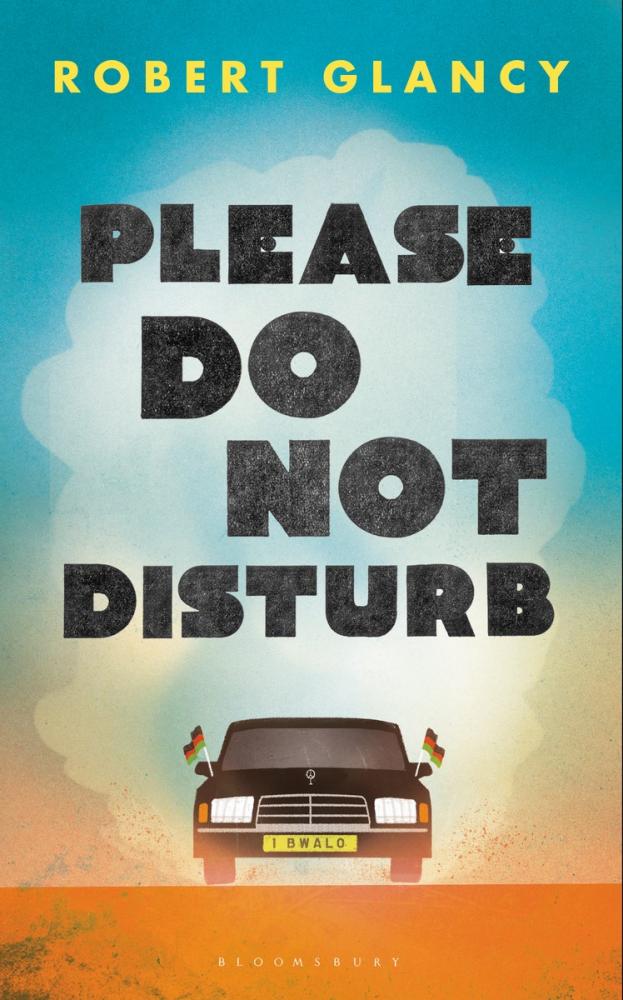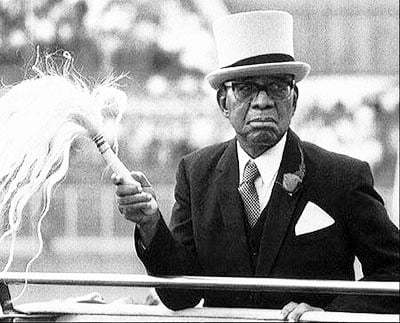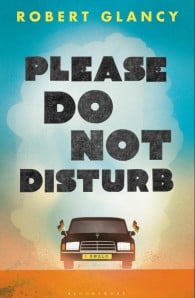‘Bwalo is a thinly veiled version of Malawi. Tafumo, the fictional dictator, is based on Banda, Malawi’s real dictator. Power corrupted Banda completely. Near the end of his seemingly endless rule he was madder than a bag of snakes.’
Robert Glancy’s second novel is a wonderfully funny, often poignant book set in a fictional African country, Bwalo. On the eve of the ‘Big Day’ when Bwalo’s glorious leader, King Tafumo will appear, there’s heady anticipation at the Hotel Mirage. Amid the excitement, the Scottish hotel owners’ son Charlie eavesdrops on hotel guests and finds out more than he bargained for.
Author Robert Glancy talks to Better Reading about following up on his successful first novel, Terms and Conditions, life in Africa and combining comedy and terror to great effect.
Better Reading: Congratulations on your latest novel which we thoroughly enjoyed. In Please Do Not Disturb, the oft-inebriated teacher/writer Irishman Sean is struggling with his second novel. Did this reflect any struggle on your part after the success of your first novel Terms and Conditions?
Robert Glancy: Ah, yes, the curse of the second novel! In fact, in a way, Please Do Not Disturb is technically my first novel; it’s the first book I ever started. Terms & Conditions was my second book, but it was finished and published first. I’m always juggling books waiting for one to rise above the rest.
Please Do Not Disturb has been bubbling away for longer than I care to admit. What was a shock was to suddenly have a deadline. Before that I’d been flirting with it, occasionally taking it out on dates, dumping it again. But then I got a book deal and Bloomsbury gave me a year, and let me tell you – there’s nothing like a deadline to spur a writer on! Douglas Adams has a great line about deadlines, ‘I like the whooshing sound they make as they fly by,’ but I’m not so blasé, and I was keen to keep Bloomsbury happy and hit the deadline.
That year was less about me writing the book and more about finally making the million decisions required to finish it. I had so much material, so I sat in a shed in France and I let that deadline crush me, panic me, motivate me. All books are hard to write, but I love writing, and I loved writing this book. From the moment I realised I wanted to be a writer this is the book I always wanted to write.
And, yes, I made the deadline!
BR: The African country Bwalo is fictional as are its crazy dictator and his ministers but how much are they based on real events and dictators in real countries?
RG: I stole liberally from reality. Bwalo is thinly veiled version of Malawi. Tafumo, the fictional dictator, is based on Banda, Malawi’s real dictator. Power corrupted Banda completely. Near the end of his seemingly endless rule he was madder than a bag of snakes. He didn’t let women wear short skirts, didn’t let men grow their hair. He once banned a song by the band Madness called Cecelia because that was the name of his first lady.
Banda banned TV and all media, bar the BBC World Service, which whispered in on the airwaves. When VHS players came in all VHS tapes had to be sent for approval to the censorship office. I still have a VHS of the A-Team with – Approved! – stamped on it. He also didn’t allow anyone else to own a Rolls Royce; that was his presidential entitlement. He created a school based on Eton where Latin and Greek were the main subjects and pupils caught speaking the local language, Chichewa, were kicked out.
So really I borrowed a lot but, importantly, there is only so much people will actually believe. Many writers use fiction to free themselves from the truth, however, in the case of this book, I used fiction to tame the truth, to frame it in a way that made it believable.
Sinister minsters always orbited Banda and Josef is a composite of the men I researched.
Some of the scenes are simply things that happened. The buffalo hunt was one of my first scrapes with death. Also Independence Day was huge, everything was made perfect – roses painted red – so that Banda would see only perfection. The country stopped for the day in order that we could give him the full, unadulterated focus he required to keep his ego inflated.
 BR: You grew up in Africa. How much in the novel is from your own experience and do you identify with one of the most sympathetic characters of the novel, the young boy Charlie?
BR: You grew up in Africa. How much in the novel is from your own experience and do you identify with one of the most sympathetic characters of the novel, the young boy Charlie?
RG: I sympathise with all my characters. Life is not simple, and I never judge my characters, they are not symbols, nor are they moral metaphors. They are just people – messed up, confused, at times not always influenced by the better sides of human nature.
But, yes, young Charlie is me. Charlie’s parents are my mum and dad, but I just made them into managers of a hotel rather than a teacher and a nurse. And for simplicity’s sake I made them both Scottish (sorry Mum! (She’s actually Irish!)).
Sean, the drunken Irish man was a friend of my father’s, who is now sadly passed. He was not a writer but a musician. He was a terrific guy but a bad drunk and more often than not his incredible potential was lost to debauchery, women and whisky.
Hope is based on my mother’s Malawian nursing friends, and my mother too. Hope is a good woman who has been blunted by reality, cynicism has polluted her innocence, but at her core she still personifies her name. So yes all the characters have roots in reality.
BR: Many of the white colonial characters, such as Sean and Charlie’s parents, have a love-hate relationship with Africa. We understand you’re now a New Zealand resident, but do you still have a strong connection with Africa?
RG: I have lived in a lot of places but because I was in Africa for my first formative years I feel very connected to it. I was born in Zambia and raised in Malawi until I was 14, so Africa and my childhood are tightly interwoven; we share a muddy history together.
Then I studied African history at Cambridge – Boer War, Mfecane migrations and colonisation – and so that clash between my innocent, childish view of Malawi and my more academic understanding of Malawi infused this book. In simple terms the book can be cracked into two perspectives: Charlie’s naivety and Hope’s blunt reality.
I have returned a few times, when I was 20, and more recently with my parents in 2015, which was a bittersweet experience. My parents volunteered in Tanzania in 2014 – hence the fact I was living in their French cottage, cat sitting as I wrote PDND – so, yes, we still have lots of friends there and are still connected. Twee though it sounds: once you’ve been in Africa for a while it’s in you forever. It’s truly like nowhere else on earth.
BR: There’s a lovely blend of poignancy and humour throughout this novel. Was this difficult to balance?
RG: Difficult to find the tone but once I found the tone, then the balancing act came naturally. To paraphrase Don DeLillo, with the right tone you can do anything, without it nothing. The balance of fantastical and factual is always hard with places as distinctive as Malawi.
But once I found my old diaries from when I was young – and after I’d laughed my arse off at the way I used to write, think, and spell with such imaginative extravagance – then I knew I had Charlie’s voice. Something naïve, funny, and ultimately entertaining.
Every book is a reaction to the last, and Terms & Conditions was intentionally ‘placeless’. It was set in London but I wanted it to feel global, generic, corporate. I wanted to emphasise that globalisation is homogenising everywhere to be like everywhere else, and also I didn’t want the setting to get in the way of the pace of the plot or the jokes. Please Do Not Disturb was the opposite; it was all about the place, the setting, so I wanted it to look, feel and smell like Malawi.
BR: The novel is told – very successfully – from many different points of view, such as the lovely but sad figure of Hope, who is dictator Tafumo’s nurse, and the doomed Minister Josef. This works well but was it difficult to achieve?
This comes back to tone. I arrived at the right tone via a very simple technical decision. I didn’t want to have my voice in it, that classic sort of distant omniscient presence. So the day I decided to write all five character from first person was a day of great happiness, I literally smiled all day (oh, the tiny triumphs of writers! Ha!).
To avoid proclamations about Malawi or Africa in general – the world is full of those already – I wanted it all to be tightly woven into the point of view of very different characters. There is not one Malawi – there are millions of Malawis, all seen from the point of view of different people. That’s what I wanted to reflect.
Some authors are critical of first person as it is too tight, you can’t spread your wings and float over everything, filling in plot holes, but for this book it made sense. It was the key to everything; it gave my characters what I call Reality Blindness. Which is rather like Snow Blindness but less cold. It means you only know what the character knows.
Then I had lots of fun splicing and gently overlapping the characters as they experience the same events from different angles. It’s a book rich in dramatic irony; in the end, by gluing together the fragments of all the characters, the full picture is revealed only to the reader.
BR: There’s a lot of humour surrounding Westerners’ behaviour in Africa – Horst and his drunken wife Marlene and their tacky hotel, the celebrity American singer and his entourage of dancers and publicists. Is there still a form of colonialism happening even after countries have gained independence?
RG: Banda sold the illusion of sovereignty as he sustained the structures of colonialism. How much sovereignty do you have when not a single election is held and when no one is allowed to oppose him without dire consequences?
You have to keep in mind how British Banda had become. Banda returned after decades in England where he had lived and worked as a General Practitioner. There is film of him arriving back in Malawi dressed in a three-piece suit and a Homburg hat. So when he returned he had a very English sensibility. He was a chimera; he was part Chichewa Malawian part posh British GP. Banda had been away so long he didn’t even remember how to speak Chichewa; he had to have a translator. So as Josef says of Tafumo – ‘He had travelled so far to the other side he could no longer see where he began.’
And Banda’s rule was autocratic, often brutal just like the British. He was not all bad, he is sometimes described with that awful oxymoron, benevolent dictator – for he was no Idi Amin with the heads of victims in fridges – but he was still on a smaller scale repressive, a man who locked up and ‘vanished’ people who opposed him.
As for the drunken white people – well, without being too stereotypical I think expatriates are a sort of breed of person. Expatriates are always torn; rather like Banda becoming British, I think people abroad naturally become a part of their new home but always feel the tug of their roots. Sean says, ‘a long stint in Africa prepares you for only one thing: a longer stint in Africa.’ That conflict often tears people apart – maybe it leads to heavy drinking too! – but it is a strong source for interesting friction and therefore entertaining fiction.
BR: Who are your literary influences?
RG: For this book I was influenced by my mum and dad’s bookshelf, literally the books I read as a kid. We had lots of Chinua Achebe, lots of Paul Theroux. Although, in fact, Theroux’s books were banned in Malawi. Theroux lived there for a while but did something to upset Banda, so Banda banned his books. But my parents had a few illegal copies stashed away – illicit books hidden in brown paper bags! Gosh, the intrigue! No wonder I became a writer. Also William Boyd, Nkem Nkwanko, Giles Foden, Ayi Kwei Armah, and, more recently, the wonderful Chimamanda Ngozi Adichie and NoViolet Bulawayo. Plus expatiate writers, or Third Culture Kids as I call them, such as the superb Peter Godwin and Alexandra Fuller. My humour comes from the great American comic writers, Heller, Vonnegut, and I also adore the immaculate British stylists, Edward St Aubyn, Adam Foulds and Jim Crace.
READ MORE:
To find out more or purchase a copy of Please Do Not Disturb click here




Leave a Reply